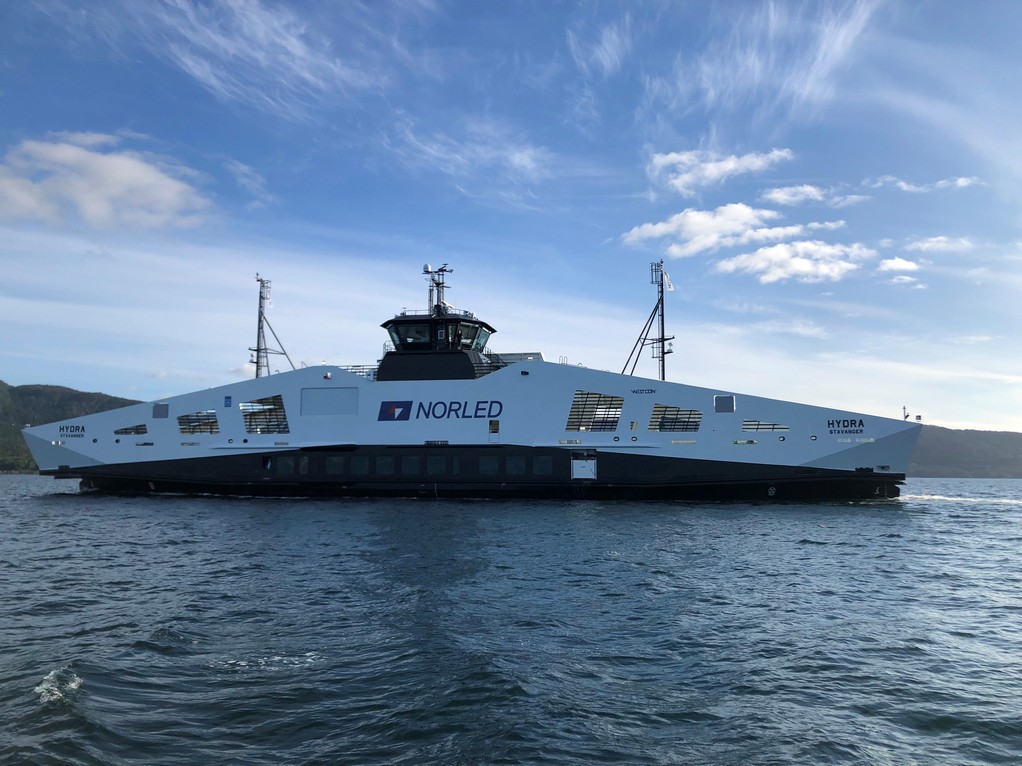MF Hydra is put into operation running on zero-emission hydrogen, this is groundbreaking in several ways. In addition to the major technology development, a great deal of work has also been done to develop rules and regulations to enable Norwegian passenger ships to run on hydrogen.
The Norwegian Public Roads Administration (NPRA) is proud to contribute to making public procurement an instrument in developing and implementing new technology, and thus provide better facilities for road users, says Anders Sæternes of NPRA Ferry Management.
While Norway persists as a leading global actor concerning the green shift within maritime transport – the Norwegian Public Roads Administration leads the nautical way towards a greener future – with our combined efforts in technological advancement and green policy development.
20 years of green ferry innovation predates our current efforts. In the year 2000, the MF Glutra became the first car ferry to run off liquified natural gas (LNG). The use of LNG leads to reduced greenhouse gas emissions, as compared to traditional diesel operation. Eleven years ago, the NPRA issued a tender which resulted in the MF Ampere, the world’s first electrical ferry with propeller drive.
Therefore, by putting the world’s first hydrogen ferry into operation, we now take yet another substantial leap towards the goal of zero emissions – in regards to ferries as well as the general maritime industry – both in Norway and internationally, Sæternes sums up.
Since the turn of the year, Norled has been carrying out system tests at the quay in Hjelmeland. In recent weeks, they have been running sea trials and received the final approvals from the Norwegian Maritime Authority (NMA).
When the work on the MF Hydra started, both technology and regulations from classification societies and the Norwegian Maritime Authority were inadequate. These are now in place.
Liquid hydrogen may be playing an important role in the green maritime transition. The pilot project in Hjelmeland is therefore very important for global shipping.
The Maritime CleanTech business cluster works closely with the maritime industry and encourages the use of new zero-emission technology.
Linde Engineering in Germany has supplied the hydrogen systems on board. Danish Ballard has developed the fuel cells that produce electricity from hydrogen. Westcon in Ølensvåg has been responsible for equipping and completing the vessel together with system integrator SEAM from Karmøy. Seam has also supplied the automation scope for the hydrogen system.
Corvus Energy has supplied the batteries for the MF Hydra and the vessel has been approved by the Det Norske Veritas (DNV).
Tags: MF Hydro, NRPA, ZeroEmission

Recent Posts
SRK achieves net zero certification in global diamond sector
Banle Energy takes part in Tata Steel B24 bio bunker fuel voyage
NS United orders methanol newbuild
BG Freight Line launches biomethanol feeders to service
Hutchison Ports BEST leads the way in environmental sustainability
Yara, AM Green sign term sheet for sale of ammonia
Transition to zero-emission fuels could generate massive new jobs
Idemitsu invests in HIF to develop a supply chain of e-methanol